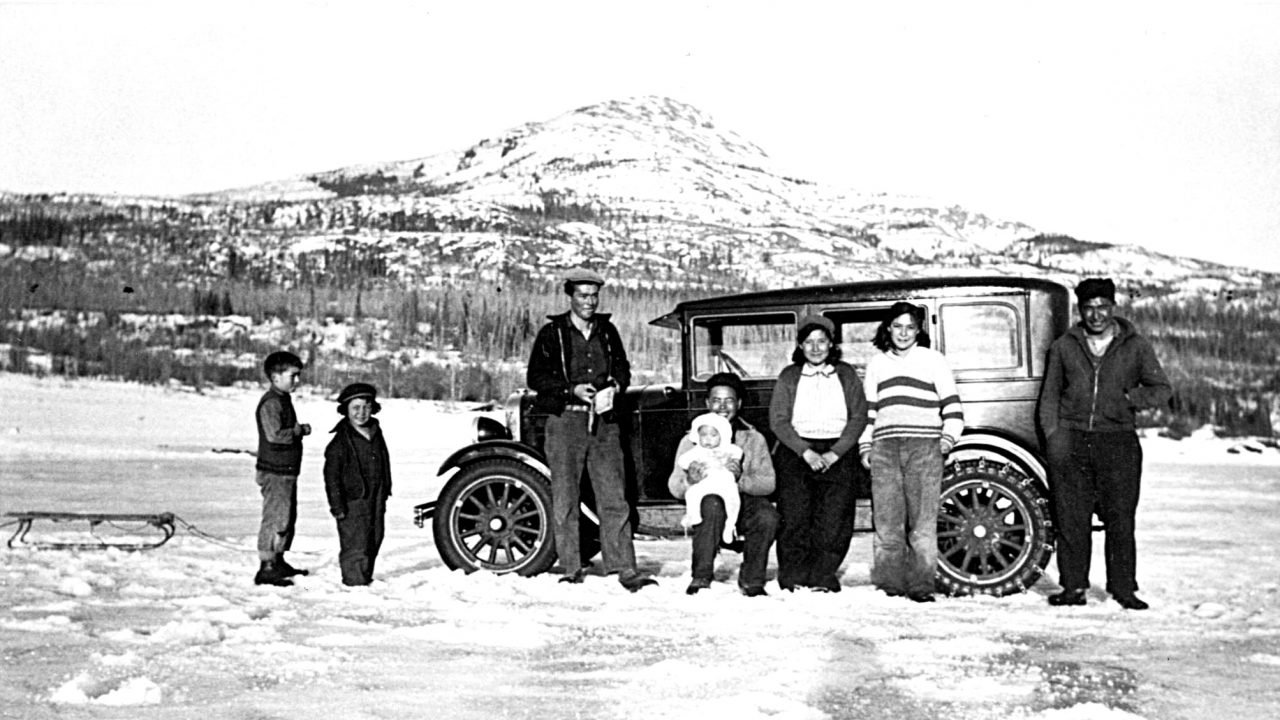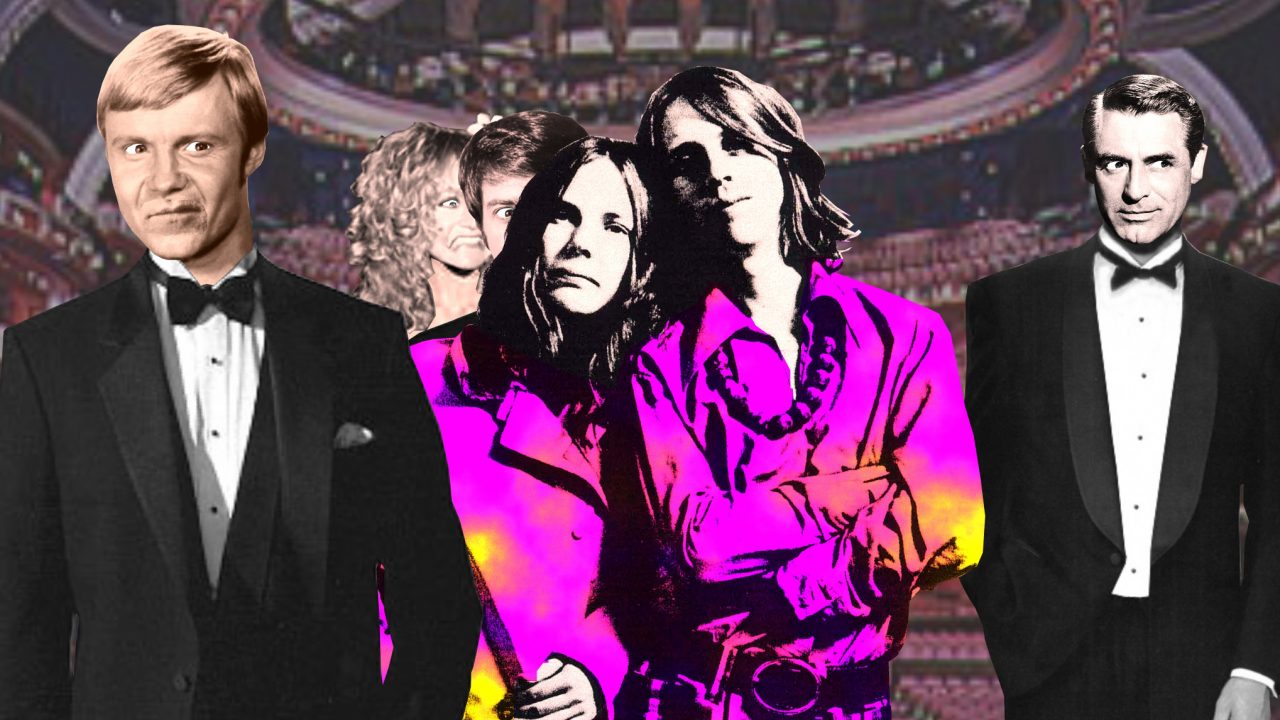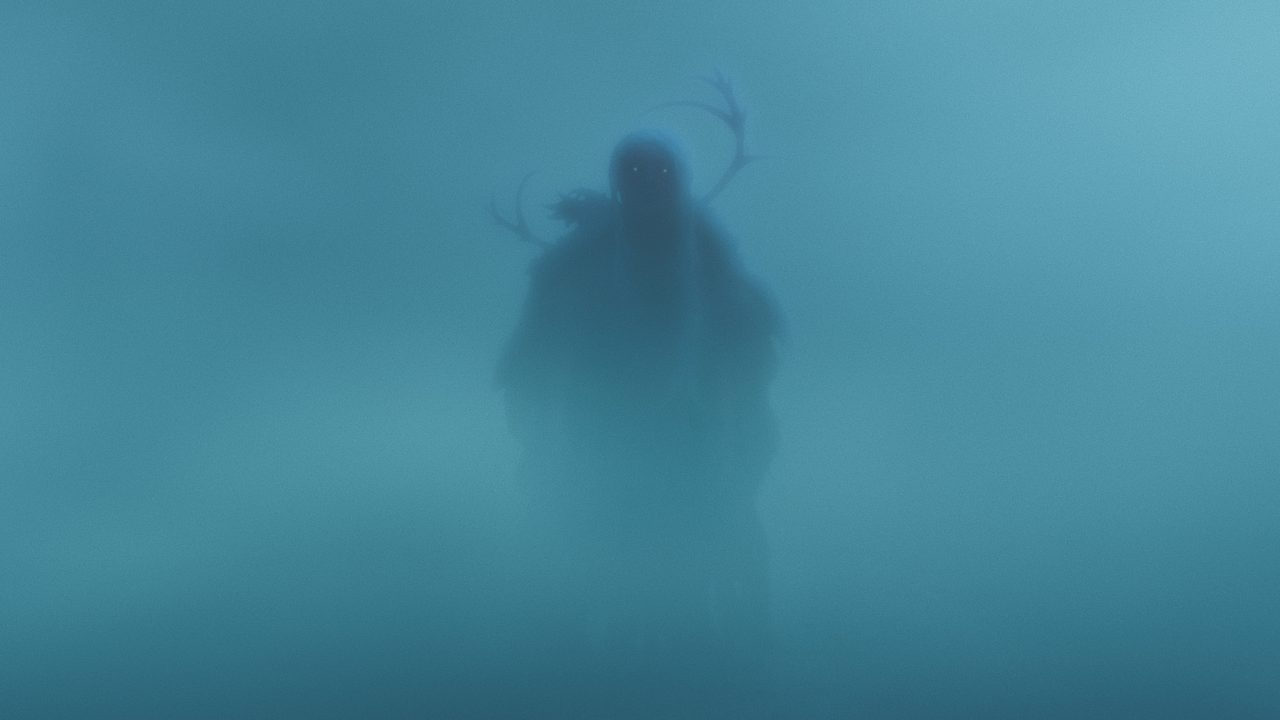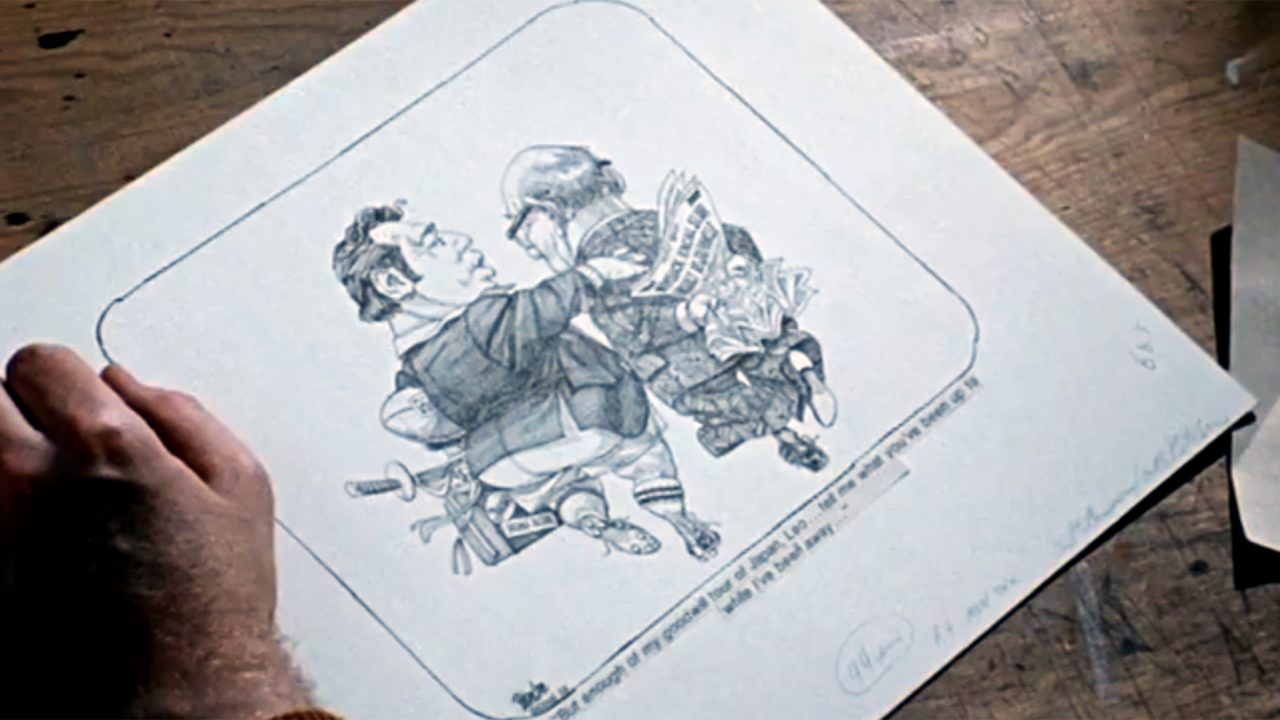
The Hecklers –The history of the political cartoon in Canada | Curator’s Perspective
The Hecklers –The history of the political cartoon in Canada | Curator’s Perspective
Every May 3rd since 1993, World Press Freedom Day has been celebrated around the world. As UN Secretary General António Guterres declared, “No democracy is complete without access to transparent and reliable information.It is the cornerstone for building fair and impartial institutions, holding leaders accountable and speaking truth to power.”
But what about editorial cartoons? Should they be protected under freedom of the press? Absolutely. In their own way they hold leaders accountable for their actions and speak truth to power. In this blog post I want to introduce you to The Hecklers, a sublime 1975 documentary about political cartoonists in Canada that I know you will enjoy.
The film was conceived by Montreal editorial cartoonist Terry Mosher (a.k.a. Aislin), who researched the history of the political cartoon in Canada all the way back to the Battle of the Plains of Abraham! It seems that the Marquess Townshend (third in command of the English Forces in Quebec) drew some cartoons lampooning General Wolfe’s obsession with hygiene. These were passed among the officers before the battle to lighten the mood. Ironically, it was the Marquess who accepted the French surrender after Wolfe succumbed to his wounds during the battle.
Mosher, who reviewed some 70,000 cartoons during his research spanning 200 years, worked closely with writer Ian Mayer (of the Montreal Gazette) and director Ian McLaren to relate a thorough history of these unsung heroes. The film tells us that some cartoonists in Canada were jailed for their cartoons. Others were sued and some were severely beaten.
If that isn’t an attempt to censor the press, I don’t know what is.
(Here is beautiful artwork from The Hecklers poster) :
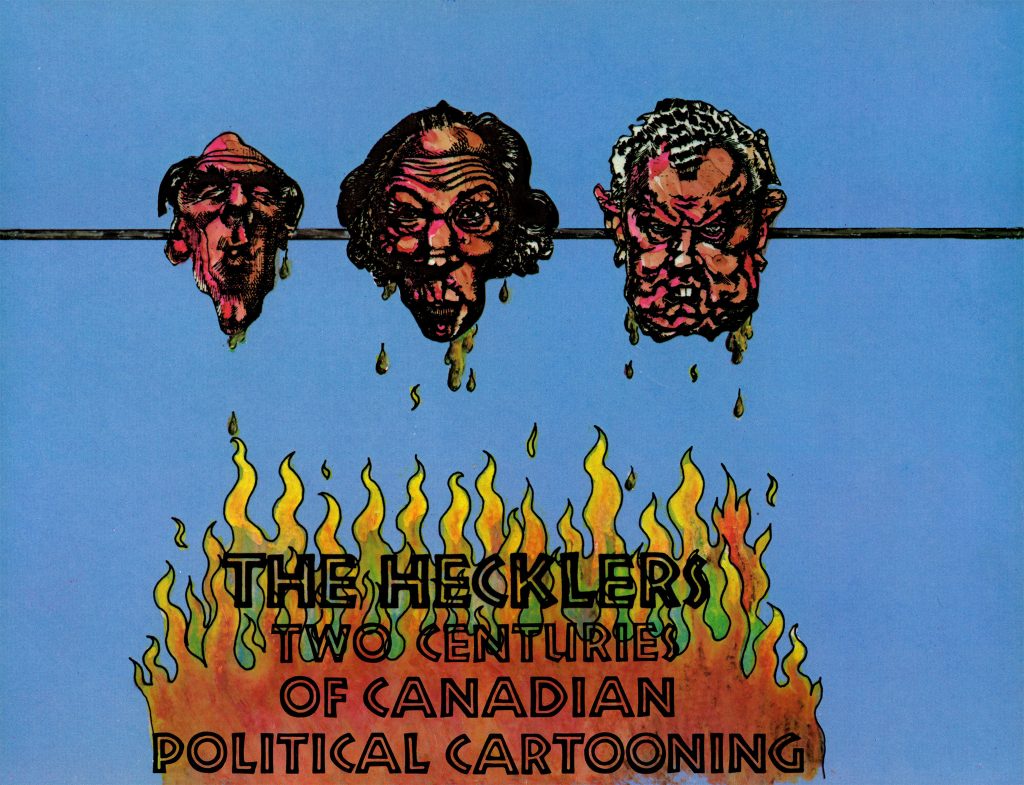
The film contains many interviews with the cartoonists of the time, including Mosher, Toronto Star cartoonist Duncan Macpherson, Len Morris and Robert Lapalme. Along with Normand Hudon of Le Devoir, Lapalme fought Quebec premier Maurice Duplessis with editorial cartoons during the darkest days of his reign.
Stu Cameron of the Calgary Herald fought a similar battle with Alberta premier William Aberhart. It got so bad that Cameron’s home was fire-bombed by Aberhart supporters. The premier even tried to pass legislation that would censor the press. Thankfully, that motion was defeated.
Most of the cartoonists interviewed reveal that they have a strong dislike of authority. They see themselves as the spokesman for the little guy, for the ones who have no voices. Unfortunately, as one cartoonist puts it, they are also preying on the pain of the world.
The interviews with Canadian politicians John Diefenbaker, Robert Stanfield and Joey Smallwood are what sets the film apart. Their insights on the power of the cartoon are quite revealing. Smallwood even says, “I would have hated to see even one cartoon about my opponents, even an unfriendly cartoon. Cartoons, friendly or unfriendly, are so good, they’re so valuable, that I’d hate to see them wasted on my opponents.”
Diefenbaker, who, at the time, was the most caricatured politician in Canadian history, shows in his interview that he has an excellent sense of humour and fully understands the cartoon’s potential in shaping opinions. Conspicuously absent from the film are interviews with the prime minister at the time, Pierre Trudeau. Fortunately, we are treated to several hilarious cartoons of him.
Some of the cartoons in the film have been animated, complete with voice actors reciting the dialogue, to make them come to life. I think that was a great touch by the filmmakers.
The Hecklers, Ian McLaren, provided by the National Film Board of Canada
The film got rave reviews when it was shown on the CBC network on January 18, 1976. The Ottawa Journal called it “a genial film study” while the Montreal Star stated that the film was “wholly entertaining, amusing and unique.” What surprised me was the coverage of the film in the French press, which is very rare for a film only available in English. Montreal’s La Presse said it was “un bijou” (a jewel). Ottawa’s Le Droit praised the film and asked that a French version be produced as soon as possible.
No French version was ever produced, but Mosher and La Presse’s Serge Chapleau appeared in the 2003 film Nothing Sacred, in which the cartoonists are shown plying their trade during a very busy period that included a Quebec provincial election and the American–led invasion of Iraq. Although we see that the techniques have changed, the editorial message has remained the same in the years that have passed since The Hecklers was produced.
Nothing Sacred, Garry Beitel, provided by the National Film Board of Canada
Both The Hecklers and Nothing Sacred shine a light on these talented artists whose work is usually given short shrift. Their cartoons are as important as the written word in any newspaper editorial. They must be protected at all costs. As John Diefenbaker states at the beginning of the film, “A picture is worth a thousand words, a cartoon, well done, is worth a thousand pictures.”
Enjoy the films.
